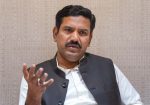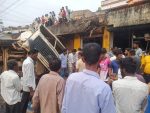
Online learning has changed the way students work — we need to change definitions of ‘cheating’ too
PTI, Jun 23, 2021, 10:00 AM IST

Image Credit: Shutterstock (for representation)
Palmerston North (New Zealand): As university students wait on their mid-year exam results, some will no doubt be thinking about more than just passing. Since COVID-19 pushed teaching and testing online last year, the issue of cheating has come into sharper focus.
Recent reports of University of Auckland students allegedly cheating in online exams highlighted the potential for dishonesty in a trust-based system.
But the problem also highlights a tension between cultures: the increasingly online world of higher education, and the everyday world of students.
This has made “cheating” in exams a more complex and evolving question than it once was. It also has implications for the credibility and value of university education and how we perceive student learning.
Traditionally, entry to university exams was controlled using student identity card photo checks. Set in large rooms, exams were invigilated to ensure students couldn’t communicate with each other in order to cheat.
Everyone had their place, and what students could take into the room was described and restricted. Teachers set the exams, the students sat them, exams were marked and final grades given — simple enough.
COVID-19 changed all that. For institutions where “blended” (face-to-face and online) learning had already been integrated, the digital switch was not so dramatic. But teachers and students who relied on paper-based or face-to-face teaching and learning faced something of a crisis: how to integrate existing practices with new technology.
A rushed revolution
Of course, the adjustment wasn’t equal. While some teachers and many students could quickly grab the latest device, connect to wi-fi and carry on, others struggled to access workable devices and internet connections.
Universities, teachers and students had to engage with software that couldn’t cope. Meanwhile, new software was evolving as fast as COVID. We shouldn’t be surprised if the university behemoth struggled to adapt or change fast enough.
Often, paper-based exams were simply transferred into online learning systems with little restructuring to suit the changed circumstances.
Incidences of cheating didn’t appear as prevalent at the end of 2020’s first trimester/semester — possibly because everyone was caught on the hop by what was happening.
However, students have shown they can cope with rapid change. Resourceful and adaptable, they have created their own ways of working and systems for information exchange. They form remote and close study groups, work collaboratively and draw on each other’s strengths.
Essentially, they are demonstrating the innovative, adaptable learning skills our education system and future employers expect of them. So why should we be surprised if students apply the same approach to online examinations?
Encouraging collaboration
Universities often struggle to explain to students why academic integrity is important (the University of Otago being an exception). Unfortunately, most university policies conflate academic integrity and academic misconduct.
We would argue that definitions of collusion as “working with others when it is not a group assignment” and “providing information to other students” are out of step with the new teaching and learning environment and its expectations.
Furthermore, we know learning collaboratively encourages higher-order understanding — yet the current environment continues to require individual assessment of students.
If education systems and teachers can’t provide specific guidance about preparing for and sitting online exams, what are the grounds for accusations of cheating? These grey areas reflect the generally opaque nature of the post-COVID world.
Specifically, what exactly is wrong with students discussing problems, proposing solutions and presenting their own interpretation as their answer?
Exams must evolve
In the networked world, the line between what is original and what is adapted is more blurred every day. It isn’t always possible to decide what is original and unique in order to give it individual credit.
If exams are designed to assess higher-order cognitive development – demonstrating individual ability to synthesise and apply knowledge – surely collaboration can be the vehicle for what educationalist John Biggs calls deeper learning. Can’t examination practices change to capture this?
Rather than universities continuing to define student activities via traditional regulation, perhaps instead educators need to think strategically to tap into this new student energy.
University exams need to check for individual (or collective) application, evaluation and synthesis of knowledge, not just rote learning and recall of study notes.
It is evident the tertiary environment is evolving and students have demonstrated their creativity in banding together to solve problems in a modern way. Now is the time for examiners and exams to get smarter, too.
Traditional ways of operating are behind us. We need to keep moving forward — away from the comfortable and into the confusing jungle of synthesised, regenerated and expanding knowledge.
By Linda Rowan, Massey University and Fiona Murray, Massey University
The Conversation
Udayavani is now on Telegram. Click here to join our channel and stay updated with the latest news.
Top News
Related Articles More

LS 2024: Yet another face-off between seasoned politicians Kota Srinivas Poojary & Jayaprakash Hegde

Wish to work for betterment of my state Odisha: UPSC 2nd rank holder Animesh Pradhan
Climate change is causing marine ‘coldwaves’ too, killing wildlife

Celebrating Vishu: A Tapestry of Traditions Across India

‘Sangh values’ run through my veins; can’t think of filling mother’s shoes: Bansuri Swaraj
MUST WATCH
Latest Additions

Injuries don’t define you: Mohammed Shami shares rehab update

Shivakumar desperately wants to become CM, says K’taka BJP chief Vijayendra

Scribe throws lapel microphone towards Sharad Pawar in Baramati; cops give clean chit

India delivers first batch of BrahMos missiles to Philippines

Air India cancels Dubai flights due to operational disruptions

























